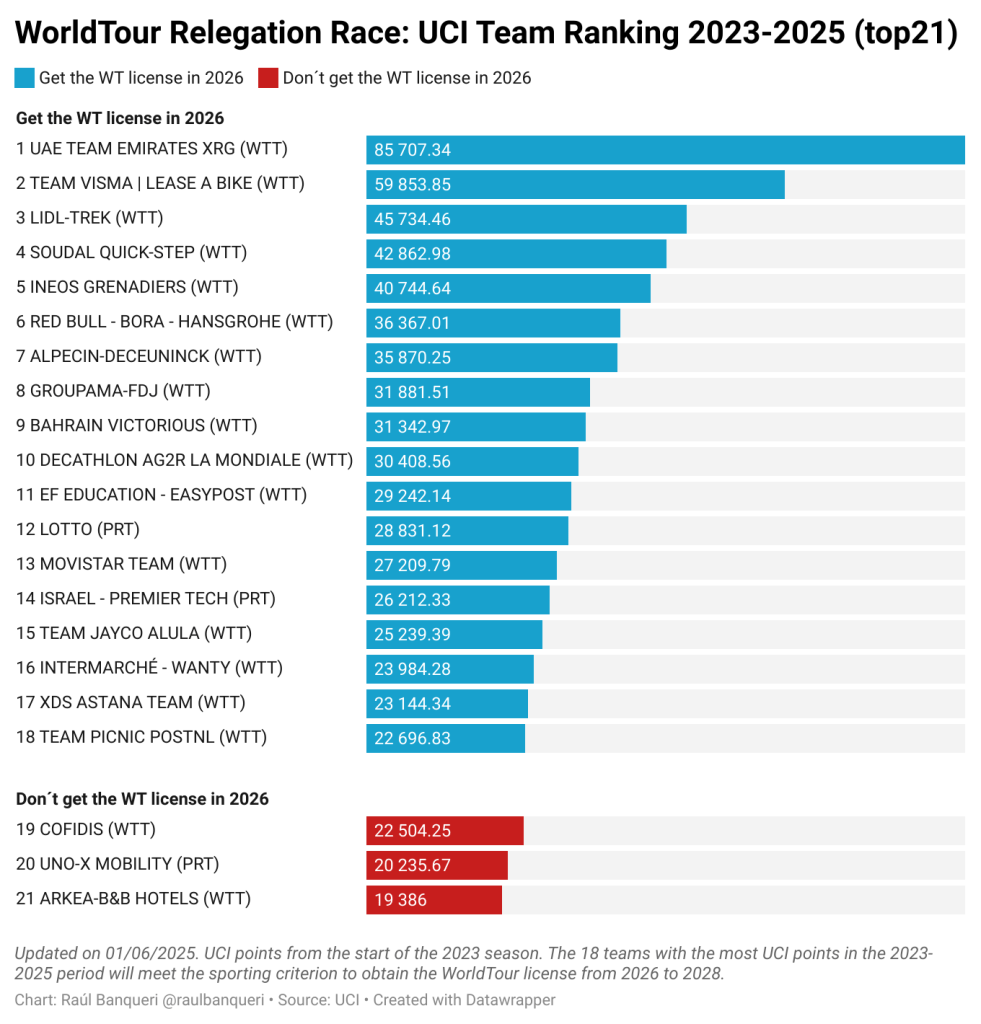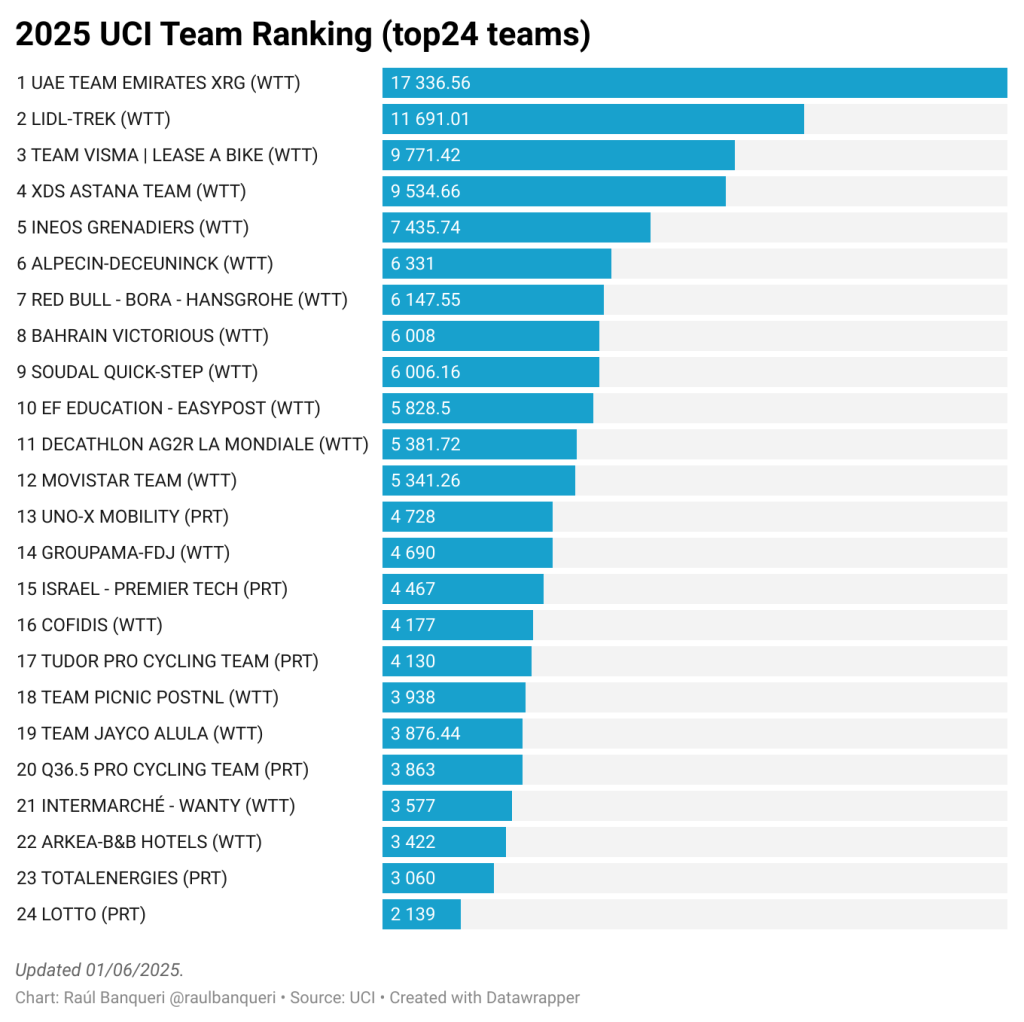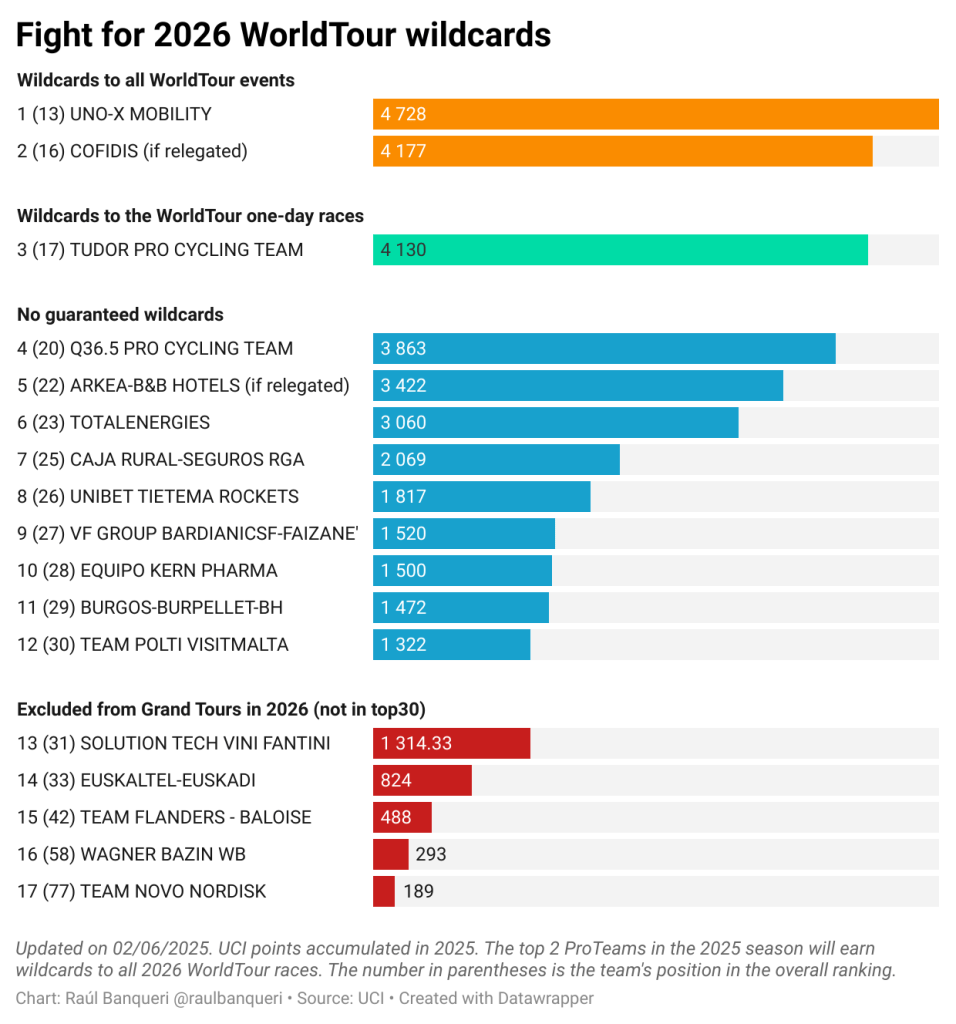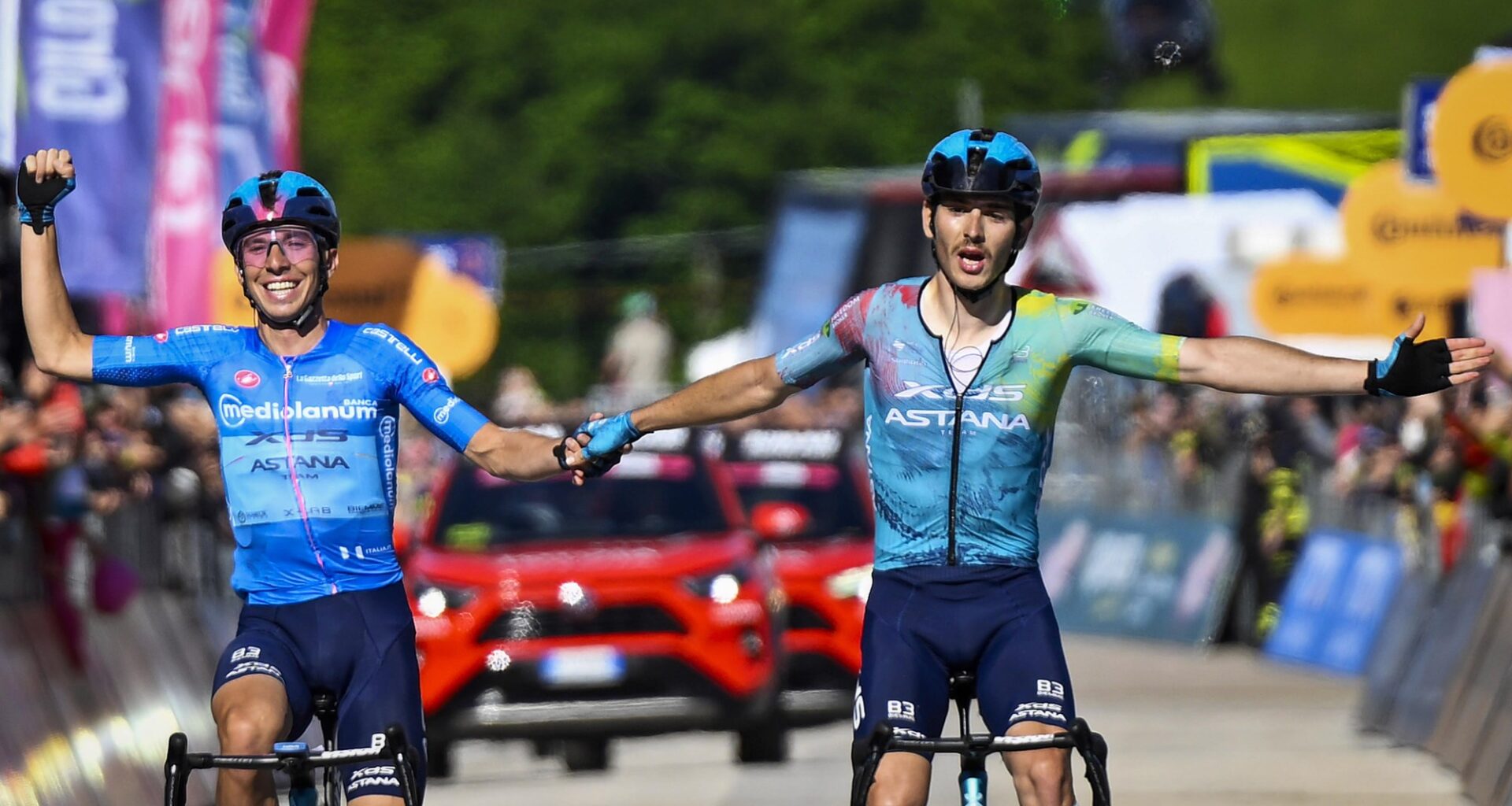In a thrilling Giro for the GC, Astana has also achieved its own particular goal: to climb out of the relegation zone after starting the season with a 4,720 UCI points deficit. Not only have they achieved this with a fantastic Giro d’Italia, but also by winning the Tour de Hongrie (with Harold López) and the Boucles de la Mayenne (with A Gate) in the alternative calendar.
2023-2025 UCI Ranking

As you can see in the graph, Astana has already opened up a 640 UCI point gap over Cofidis, which would now be relegated from the WorldTour. Picnic has managed to avoid the relegation zone thanks to a good Giro d’Italia, but it looks like both Picnic and Cofidis will be fighting to avoid relegation for the rest of the season. In addition, Astana has the advantage of the end-of-season hilly one-day races, which are ideal for its puncheur riders.
In the last two seasons, Picnic and Cofidis scored between 4,000 and 5,000 points from the end of the Giro d’Italia to the end of the season. Assuming they improve those scores a little, the relegation threshold should be round 27,000/28,000 points at the end of the season. Israel and Jayco (14th and 15th in the rankings) should easily reach those figures, but it may be more difficult for Intermarché, whose lead over the relegation zone has fallen to less than 1,500 UCI points.
Cofidis was the 4th worst team in the Giro, although they didn’t have much more potential. Their highlight was Milan Fretin’s 2nd place in the sixth stage, who then skipped the last week to avoid accumulating fatigue and to continue scoring points in smaller races.
The problem for Cofidis is that they did not excel in the eight minor races held in France this May either. While the other French teams (Decathlon, Groupama, Arkéa, and TotalEnergies) have earned between 700 and 1,000 UCI points in the French calendar in May, Cofidis has earned just over 400 points. For the remainder of the season, Cofidis needs a better version of Alex Aranburu, who can score big in stages of the Tour de France and the hilly classics at the end of the season.
Team Picnic scored more than 1,000 points in the Giro, thanks to Bardet’s breakaways, Poole’s 11th place overall and Van Uden’s stage victory. Picnic prepares more thoroughly for the big races than Cofidis and was able to capitalize on that in the Giro. In addition, Tobias Lund Andresen has sustained the team in the alternative calendar: 7th in the Classique Dunkerque, 4th in the 4 Jours de Dunkerque, and 4th in the Tour of Norway. In theory, Andresen will be the card to play in the sprints for the Tour de France, with Oscar Onley for the general classification.
With Bardet’s retirement after Dauphiné, Picnic will be left with a roster of 27 cyclists. Add to that the injuries of Jakobsen, Degenkolb, Van den Berg and Dinham, and in practice, the roster is down to just 23 cyclists. Therefore, they will have to make extensive use of their development team in order to cover a wider calendar at the end of the season.
An experienced cyclist like Barguil could be key for Picnic at the end of the season thanks to his consistency in hilly one-day races. The Frenchman was already the “hero” of Arkéa’s promotion to the WorldTour at the end of 2022. It would also be helpful if Pavel Bittner could step up in one-day races, where he struggles more to achieve results than in stage races.
The other team at risk, Intermarché, is the most dependent on its leader. They only have Biniam Girmay in the top 150 of the individual ranking, so they cannot afford a poor performance from Girmay for the rest of the season. In the Giro, their other sprinter, Gerben Thijssen, has only managed to score 25 UCI points, with no top 10 finishes in any stages. This has resulted in Intermarché being the worst of the 23 teams in the Giro d’Italia in terms of UCI points.
In Intermarché’s current situation, it might be useful to promote Simone Gualdi (the star of their development team) to the WorldTeam as soon as possible so that his points count for the WorldTeam, even if he earns them competing with the development team or in U23 races. The downside is that, under the new UCI regulations, this would prevent him from participating in the U23 World Championships.
2025 Ranking

In the ranking so far this season, UAE Emirates continues to dominate. In contrast, Lotto is having a terrible season, but this will not have serious consequences because the Belgian team has secured promotion to the WorldTour thanks to points earned in 2023 and 2024. For its part, Arkéa remains the worst WorldTeam and has virtually no chance of staying in the top division of cycling.
In the interactive chart below, you can see the UCI points of all the riders of the 24 big teams currently.
2026 Wildcards
To allocate wildcards for the next season, the annual ranking of teams that are ProTeams in 2026 is taken into account. At the moment, Uno-X would get wildcards for the entire WorldTour for the first time in its history. The second wildcard would go to Cofidis if it is relegated, but the French team is not assured of that privilege, as Tudor and Q36.5 are very close behind. On the other hand, Arkéa would be left without wildcards for the 2026 WorldTour, although it still has a chance to overtake Q36.5 and Tudor in the second half of the season.

In addition, there is another battle among the other ProTeams to finish in the top 30 of the annual team rankings, which allows them to apply for wildcards to the Grand Tours. Among the teams aspiring to the Grand Tours, Solution Tech and Euskaltel-Euskadi would currently be excluded from the Giro and Vuelta in 2026.
Euskaltel’s situation seems very difficult to overcome, but Solution Tech does have a chance of catching up thanks to a calendar based on low-level races. For Euskaltel-Euskadi, missing out on the Vuelta a España for the second consecutive year could jeopardize the survival of the project.
